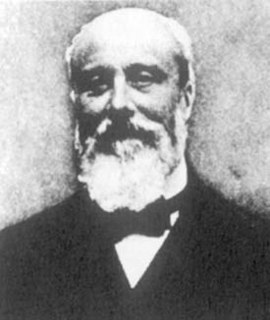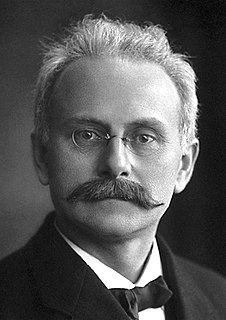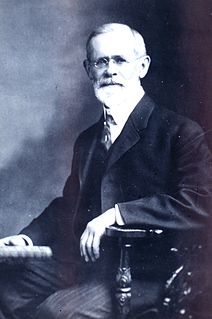A Quote by Pierre Duhem
The physicist can never subject an isolated hypothesis to experimental test, but only a whole group of hypotheses.
Quote Topics
Related Quotes
I have not been able to discover the cause of those properties of gravity from phenomena, and I frame no hypotheses; for whatever is not deduced from the phenomena is to be called a hypothesis, and hypotheses, whether metaphysical or physical, whether of occult qualities or mechanical, have no place in experimental philosophy.
All interpretations made by a scientist are hypotheses, and all hypotheses are tentative. They must forever be tested and they must be revised if found to be unsatisfactory. Hence, a change of mind in a scientist, and particularly in a great scientist, is not only not a sign of weakness but rather evidence for continuing attention to the respective problem and an ability to test the hypothesis again and again.
Given any rule, however "fundamental" or "necessary" for science, there are always circumstances when it is advisable not only to ignore the rule, but to adopt its opposite. For example, there are circumstances when it is advisable to introduce, elaborate and defend ad hoc hypotheses, or hypotheses which contradict well-established and generally accepted experimental results, or hypotheses whose content is smaller than the content of the existing and empirically adequate alternative, or self-inconsistent hypotheses, and so on.
However the machine would permit us to test the hypothesis for any special value of n. We could carry out such tests for a sequence of consecutive values n=2,3,.. up to, say, n=100. If the result of at least one test were negative, the hypothesis would prove to be false; otherwise our confidence in the hypothesis would increase, and we should feel encouraged to attempt establishing the hypothesis, instead of trying to construct a counterexample.
[Coining phrase "null hypothesis"] In relation to any experiment we may speak of this hypothesis as the "null hypothesis," and it should be noted that the null hypothesis is never proved or established, but is possibly disproved, in the course of experimentation. Every experiment may be said to exist only in order to give the facts a chance of disproving the null hypothesis.
When you look at any experimental work not directly related to economics, but trying to test rational behavior in other ways, experiments have conspicuously failed to show rational behavior. Macro evidence certainly suggests deviations from rationality, but I don't want to say the rationality hypothesis is completely wrong. If you have any introspective idea or experimental idea about people's behavior, it seems to be incompatible with the really full scale rational expectations.
A lot of humanists treat religion as if it were simply a kind of rival cosmological hypothesis, and that this is all it is. My view is that to the extent that religions are cosmological hypotheses, this is not the only important thing about them, and we - atheists- will never get a proper understanding of what religion is if we focus too much on the cosmology.
The hypotheses which we accept ought to explain phenomena which we have observed. But they ought to do more than this; our hypotheses ought to foretell phenomena which have not yet been observed; ... because if the rule prevails, it includes all cases; and will determine them all, if we can only calculate its real consequences. Hence it will predict the results of new combinations, as well as explain the appearances which have occurred in old ones. And that it does this with certainty and correctness, is one mode in which the hypothesis is to be verified as right and useful.








































